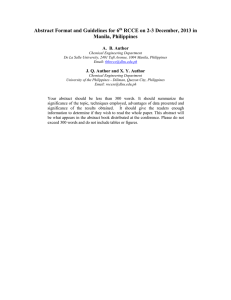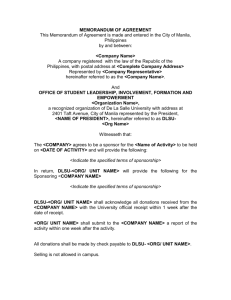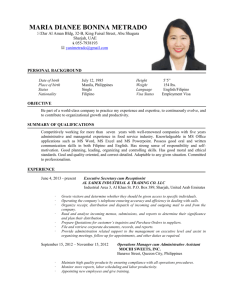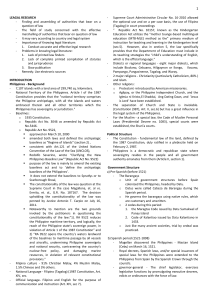C O P A
advertisement
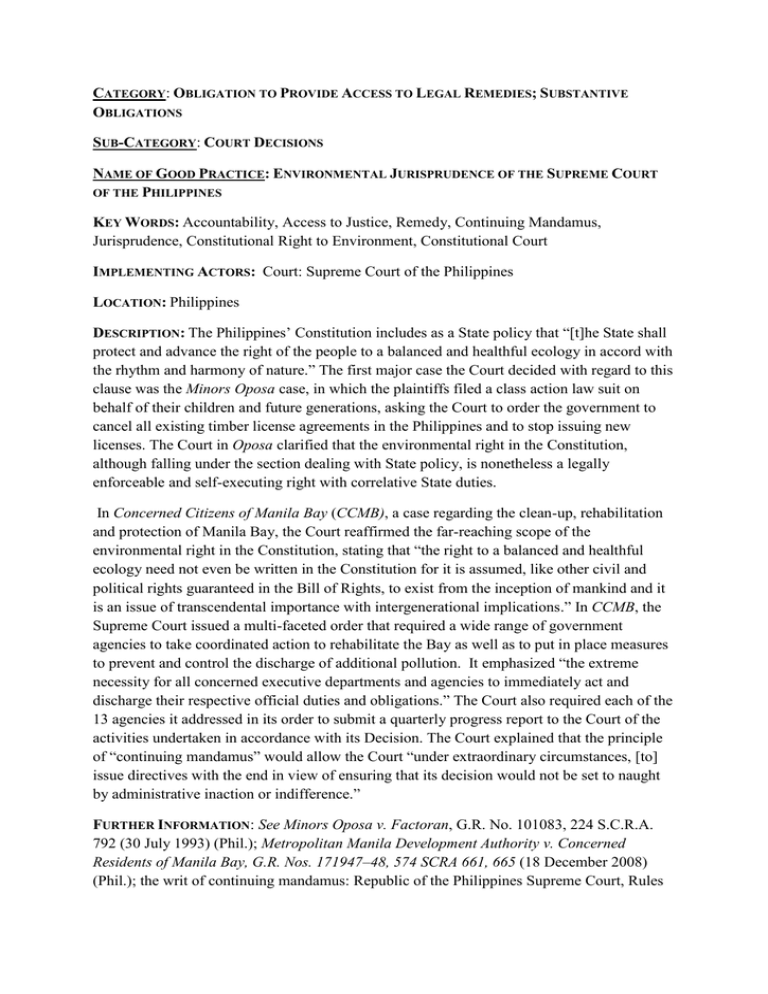
CATEGORY: OBLIGATION TO PROVIDE ACCESS TO LEGAL REMEDIES; SUBSTANTIVE OBLIGATIONS SUB-CATEGORY: COURT DECISIONS NAME OF GOOD PRACTICE: ENVIRONMENTAL JURISPRUDENCE OF THE SUPREME COURT OF THE PHILIPPINES KEY WORDS: Accountability, Access to Justice, Remedy, Continuing Mandamus, Jurisprudence, Constitutional Right to Environment, Constitutional Court IMPLEMENTING ACTORS: Court: Supreme Court of the Philippines LOCATION: Philippines DESCRIPTION: The Philippines’ Constitution includes as a State policy that “[t]he State shall protect and advance the right of the people to a balanced and healthful ecology in accord with the rhythm and harmony of nature.” The first major case the Court decided with regard to this clause was the Minors Oposa case, in which the plaintiffs filed a class action law suit on behalf of their children and future generations, asking the Court to order the government to cancel all existing timber license agreements in the Philippines and to stop issuing new licenses. The Court in Oposa clarified that the environmental right in the Constitution, although falling under the section dealing with State policy, is nonetheless a legally enforceable and self-executing right with correlative State duties. In Concerned Citizens of Manila Bay (CCMB), a case regarding the clean-up, rehabilitation and protection of Manila Bay, the Court reaffirmed the far-reaching scope of the environmental right in the Constitution, stating that “the right to a balanced and healthful ecology need not even be written in the Constitution for it is assumed, like other civil and political rights guaranteed in the Bill of Rights, to exist from the inception of mankind and it is an issue of transcendental importance with intergenerational implications.” In CCMB, the Supreme Court issued a multi-faceted order that required a wide range of government agencies to take coordinated action to rehabilitate the Bay as well as to put in place measures to prevent and control the discharge of additional pollution. It emphasized “the extreme necessity for all concerned executive departments and agencies to immediately act and discharge their respective official duties and obligations.” The Court also required each of the 13 agencies it addressed in its order to submit a quarterly progress report to the Court of the activities undertaken in accordance with its Decision. The Court explained that the principle of “continuing mandamus” would allow the Court “under extraordinary circumstances, [to] issue directives with the end in view of ensuring that its decision would not be set to naught by administrative inaction or indifference.” FURTHER INFORMATION: See Minors Oposa v. Factoran, G.R. No. 101083, 224 S.C.R.A. 792 (30 July 1993) (Phil.); Metropolitan Manila Development Authority v. Concerned Residents of Manila Bay, G.R. Nos. 171947–48, 574 SCRA 661, 665 (18 December 2008) (Phil.); the writ of continuing mandamus: Republic of the Philippines Supreme Court, Rules of Procedure for Environmental cases, A.M. No. 09-6-8-SC, 29 April 2010, Rule 8: http://www.law.pace.edu/sites/default/files/IJIEA/Rules_of_Procedure_for_Environmental_Cases.pdf.
